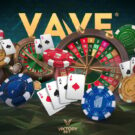If you think about playing at a Bitcoin casino, you may ask: How do you know these sites play fair and keep your funds safe? Bitcoin casinos use digital money in a way that makes rules and trust very important. This text explains why independent checks matter, how they help players, and what signs to see before you bet.
Why Trust Matters More in Bitcoin Casinos
Bitcoin casinos work in a different way from older online gambling sites. Instead of normal money, these sites use cryptocurrency. This change brings faster transfers, more privacy, and global access. Yet, the fact that many crypto casinos work without strict rules can cause worry over fairness, safety, and responsibility.
Here is why trust counts:
- Financial Security: Players need to know their deposits and wins are safe. The systems should not change transaction values.
- Game Fairness: In brick-and-mortar casinos, you can see random events. Online games depend on code to decide wins that should be fair.
- Transparency: Blockchain lets you see results in a public way if the site uses these features honestly.
Third-party checks serve as an extra guard to confirm these points and to protect players from unfair practices.
What Are Third-Party Audits in Bitcoin Casinos?

Third-party audits are reviews made by independent experts. They check a casino’s software, systems, and procedures. Their reports tell you if the games are fair, if the site meets rules, and if cyber safety is strong.
These checks look at:
- Random Number Generator (RNG) Testing: Experts check if the system that sets game results works without bias. For games like slots or blackjack, true randomness plays a big role.
- Provably Fair Verification: Many Bitcoin casinos use a method that lets players check game results by themselves. The checkers confirm that this method works well.
- Security Assessments: Because sites hold sensitive data and money, reviewers look for easy-to-break spots in security and examine encryption and login controls.
- Anti-Money Laundering (AML) Checks: Auditors see if the casino monitors risky transfers and follows measures against money abuse.
These steps give a fair view of the site and build trust.
How Provably Fair Systems and Third-Party Audits Work Together
Provably fair games stand out in crypto casinos. With blockchain and secret codes, results cannot be changed after a bet is made. Players can check outcomes with public codes, a big step from normal random checks.
Even when games are provably fair, trusted checkers are key. They:
- Confirm the secret code method is mathematically secure.
- Check that random seeds and numbers are created and kept safe.
- Look to see that no parts of the system hide risks.
Thus, self-check tools in games work with independent reviews to build trust. Each part supports the other.
Common Signs of a Well-Audited Bitcoin Casino
Before you bet, check for these signs that the site cares about fairness and safety:
- Public Audit Reports: Good casinos share links to their recent audit certificates from known labs such as eCOGRA, iTech Labs, or CertiK.
- Provably Fair Game Lists: Honest sites list which games use self-check methods and offer clear steps on how to check results.
- Regulatory Licensing: Although many crypto casinos work on loose rules, some have licenses from places like Malta or Curacao that require outside audits.
- Clear Security Rules: Look for clear details on how user data is kept safe. This includes information on encryption and secure wallet use.
- Active AML Steps: Descriptions of rules like Know Your Customer (KYC) and other anti-money rules show a commitment to fair practice.
Why Casino Checks Grow in Importance
In older casinos, internal checks looked only at money matters and fraud prevention. Today, teams also check digital risks and rule compliance.
For example:
- Cybersecurity Checks: Casinos now work with IT teams to spot weak points, ensure the latest updates are applied, and test responses to email fraud or internal issues.
- AML Monitoring: With stricter rules, internal teams frequently review transfer records and customer details to spot odd patterns.
- Governance and Risk Checks: Internal groups now look at policies, controls, and rules. They also advise leaders on needed fixes.
In Bitcoin casinos, these internal steps work with outside audits to build trust in many ways.
What Happens When Audits Find Problems?
These external reviews are more than just a formality. When checkers find issues—such as problems with RNG, security holes, or AML risks—the casino must act fast.
Common fixes include:
- Updating or fixing weak software parts.
- Training staff about safety and rules.
- Improving systems that check for suspicious transfers.
- Tightening encryption and access rules.
These changes help players by lowering risks and proving a site’s commitment to fair play.
Practical Tips for Players: Using Audit Information
You do not have to be a tech expert to use audit reports. When choosing a Bitcoin casino:
- Look at audit certificates and check their truth.
- Learn about the checkers and their reputation.
- Understand basic self-check methods to verify game fairness.
- Read community feedback and player reviews about fairness and safety.
- Stay away from casinos that do not share clear audit information.
These steps help you choose sites that value clear actions.
Final Thoughts: The Role of Independent Oversight in Bitcoin Casinos
Bitcoin casinos bring fast transfers, privacy, and global play. Still, new methods can raise doubts about fairness and safety. Independent audits, combined with self-check game methods and strong internal reviews, build a framework that gives trust to players.
By asking for clear and checkable methods, players help build a safer online space where funds and wins see protection. Choose Bitcoin casinos that share clear audit practices and a true focus on safety.






























